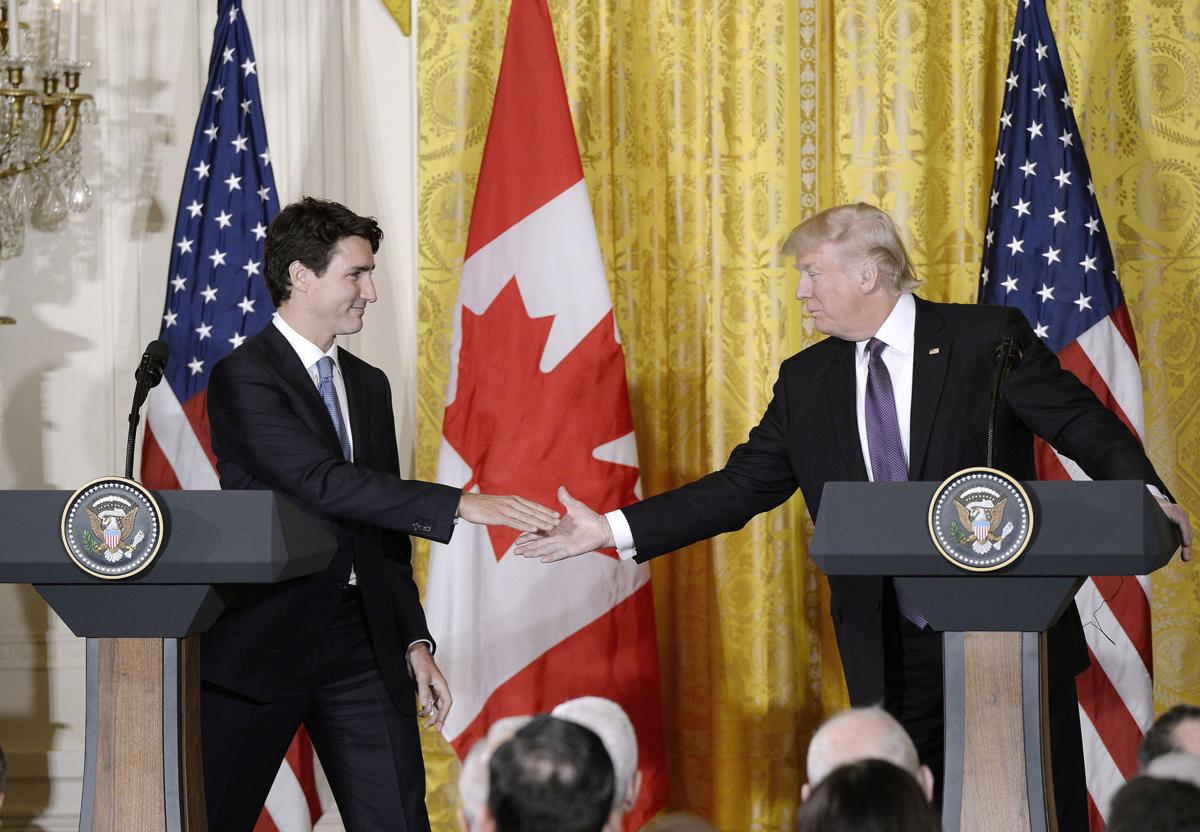If sheer distance were a measure of newsworthiness, President Trump’s recent insults and announcement of trade tariffs directed squarely at Canada might seem unimportant to those of us in Tucson, living roughly 1,500 miles from the Canadian border and a mere 65 miles from Mexico.
But we should be paying close attention. Canada is our second-largest trade partner, nationally and in Arizona; more than $673 billion in goods and services were traded between the U.S. and Canada in 2017; and the U.S. has a trade surplus of almost $8.5 billion.
That last bit of information may come as a shock to those who have heard the president claim Canada is being terribly unfair to the U.S. In this case, the president is not making an outright false statement, he is simply ignoring trade in services and concentrating on goods. It serves the narrative to leave out services, which include technology and tourism, but that is still Canadian money that’s coming to the United States.
Every year, more than a million Canadian visitors to Arizona alone spend more than $1 billion in the state. It’s hard to say that doesn’t count. Canada-Arizona trade and investment also support more than 146,000 jobs, according to the Canada Arizona Business Council. Almost 15,000 of those jobs are at the more than 300 Canadian-owned companies that operate in the state. Pima County benefits not only from Canadian companies such as Bombardier, Stantec and Oracle Mining, the region also gains through exports by firms such as CAID Industries, Raytheon, Sargent, Securaplane and Universal Avionics.
When Canadian Prime Minister Justin Trudeau spoke on “Meet The Press” a week before the G7 summit, his answer on how his country would face the steel and aluminum tariffs the Trump administration had announced was almost stereotypically Canadian: “We are thoughtful, we are engaged, we are polite, we are welcoming, but we are also firm — about our values. … We’re going to be polite, but also, we are not going to be pushed around.”
Trudeau forgot that he is dealing with a bully, though, and his measured response was the playground equivalent of a “kick me” sign — one on which Trump was quick to follow up.
The president attacked the primer minister on Twitter shortly after he left the G7 meeting — and petulantly refused to sign on to a joint statement with America’s allies — accusing Trudeau of acting “meek and mild” during the meeting but being “very dishonest & weak” after he repeated his assertion that Canada would not be pushed around on trade and would go ahead with previously announced counter-tariffs.
While there is merit to the accusation that Canada has a 270 percent tariff on some dairy imports, and the dispute over softwoods — lumber used in home construction — has been long a point of contention, neither issue is black and white. Canadians protect their dairy industry through tariffs, but the U.S. subsidizes its own dairy farmers. And international mediators have consistently ruled on Canada’s behalf over lumber issues.
But what makes the entire argument seem almost pointless, especially over the damage the president is doing to our long-standing alliance, is that even if Trump got all he wanted from Canada tomorrow, the effect on trade would be negligible. According to MarketWatch, even under the most optimistic scenario, sales of dairy and lumber by the U.S. might increase by a few billion dollars a year — not even 1 percent of U.S. exports to Canada.
With so much going on in the world, we should remember that some issues, including human rights and trade, truly do have a long reach, even into our own livelihoods.





